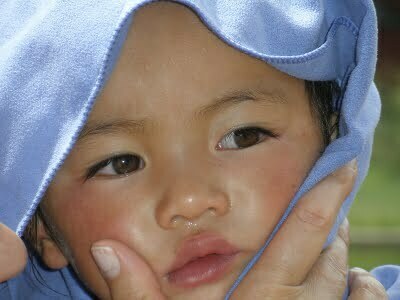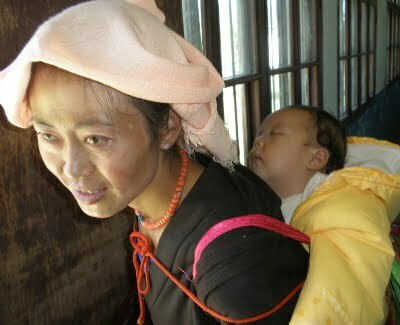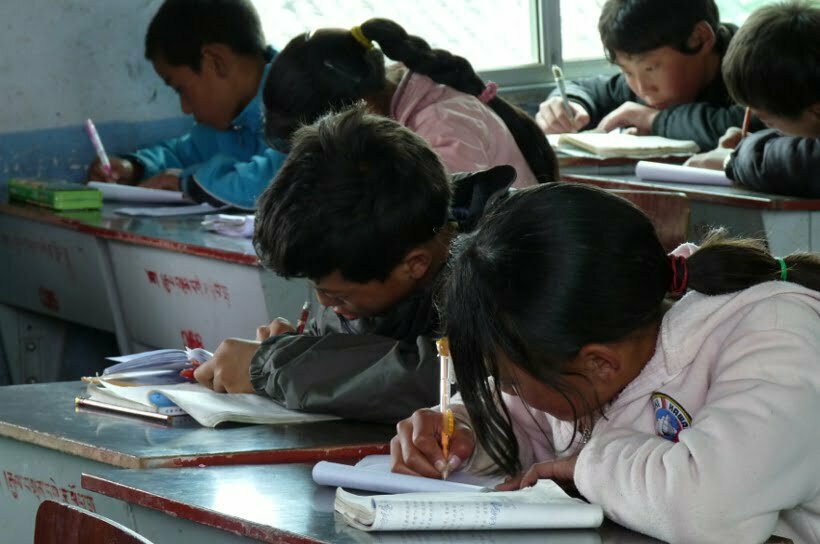Children are the hope of human progress, the future of any society. Therefore KARUNA DANA focuses specially on the situation of children.
Education contributes to improving the lives of people and it is essential to break the cycle of poverty in which many countries and population groups are immersed. The Universal Declaration of Human Rights established in 1948 the right to education as a basic human right. Today, however, still exists in the world millions of people for whom this right has not been made effective.

Children from Kham province, in Tibet, suffer health insecurity and lack of education. Precarious health is due to poor survival resources of a population living in a climate of extreme conditions. As an example, despite the abundant snow, only 37% of Tibetan children have access to potable water, a water which is often contaminated by parasites and other impurities. Malnutrition, lack of hospitals, and its high cost for rural people, is often the cause of diseases and health disorders emerging in the long term.

Access to education is especially difficult in a population that is basically rural and nomadic, and over 80% of the Tibetan people live in rural areas. Many children from these areas have to travel hours, or even days in the case of nomads, to reach the nearest school, something not all families can indulge in or afford. Due to the difficult terrain, the existence and condition of roads require the use of all-terrain vehicles or travelling by motorcycle or horseback riding. The natural conditions and household economic proverty make early childhood education to be set aside in many cases.
Early years education lays the foundations for future development of people in the physical, emotional, cognitive and social spheres. Therefore, children’s programs are to provide health care and adequate nutrition as well as stimulation and educational intention that will promote the overall development of all abilities.
It is a priority for KARUNA DANA to provide boarding school where children may reside during the school years. This ensures continuous access to education, health monitoring, improved nutrition and shelter from adverse weather conditions.

Aiming at preserving Tíbet’s culture, school also includes learning the Tibetan language, today secondary language in society, an education based in the values that Tibetans have been transmitting themselves from generation to generation over the centuries. Vocational training and education acquired at school will not only open future doors to a wider labor market and development opportunities to today’s children, but will do so preserving a philosophy of life based on freedom and altruism.
Start by contributing your bit. Collaborate with us!
